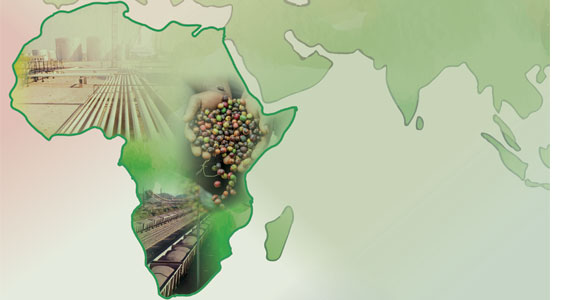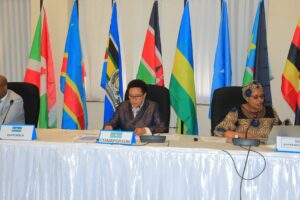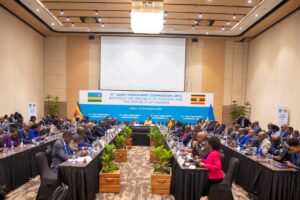
Successful integrations for trade prosperity in africa.
The Africa Continental Free Trade Area (AfCFTA) is a remarkable step aimed at generating economic benefits for African countries. The largest trade agreement in the world yet is poised to raise income by 9% by the year 2035 and lift 50 million African people out of extreme poverty. However, this flagship project works with better economic integration of the African nations and regional blocks such as the East African Community (EAC) and the Economic Community of Central African States (ECCAS). These blocks represent a similar long-term agenda whose results are yet to materialize. Among its key elements is to unify African states and eliminate any barriers that hinder economic activities and progress.
How does African unity through the AfTCFA enable trade development?
How does African unity through the trade agreement enable trade development except through the elimination of trade barriers across member states? When the agreement was signed in March 2018, negotiations were made to reduce and eliminate tariffs on 90% of goods over five years (10 years for least-developed countries). This binds the member states to lift all barriers that can hinder trade’s progression. For instance, East Africa Countries decided to re-open Katuna/Gatuna one-stop border post in January 2022 followed by a reduction in taxes on some items to support business recovery from the effects of the COVI-19 Outbreak.
The agreements also serve to enhance competition among businesses and country competitiveness. Businessmen have to seize the opportunities provided by the economic integration framework to popularize manufactured products to neighboring states and other parts of Africa. For example, Tanzania Mohammed Dewji has advanced to the regional levels in supplying his food, beverages, and textile products. Nigerian Aliko Dangote has been producing and supplying over 48.6 million metric tons annually across 10 countries in Africa including Benin, Ghana, and Togo.
Further, it opens up regional job opportunities in manufacturing and service industries among others. This integration would boost efforts by citizens across Africa to easily pursue opportunities and leading to the lifting of an additional 30 million people from generated employment. The framework positiosn women and youth to strategically take advantage of the higher-paying, better-quality jobs offered under AfCTA.
Last, it allows countries to specialize in trading with limited government interference. The economic integrations advocates for more open borders, reduction of taxes, and tariffs. This is grounded on the economic theory of a better global economy when markets function in unison and with minimal government intervention. It is through the AfCTA that the reduction of cost becomes more realized and ultimately increases overall wealth to individuals and the state at large. Not only does this encourage further participation in trade but it also champions for more economic activity among active African citizens.
What Should Africa Do to Strengthen or Stabilize Its Integrations?
There is a need for the African countries under the AfCFTA to benchmark with other international integrations, such as the European Union (EU) and learn from their success and failures. The member states of the European Union have adopted the Eurozone which provides a group of policies aimed at economic convergence and free trade among them. Among these policies include the use of common euro currency in place of former national currencies.
Introduction of more monetary and fiscal policies to create an inter-connected global economy is required. These policies revolve around currency union that sails the same boat with economic integration. Thus, to maintain the strength of a unified state area and reduce costs for both consumers and producers, integrated states need to examine their financial coordination.
There is a need for peace. Avoiding all forms of political conflicts and agitations within member states such as the extremist violence in Somalia and Mozambique in 2022 threatening to expand the conflict zones in 2023 is necessary. When a country is influenced by political or cultural violence, trade and other social and economic activities are inhibited.
A stable integration in Africa means more room for business expansion by eliminating trade barriers, encouraging trade competitors, and increasing employment opportunities for workers. An observation of the recommendations above could enhance the speedy growth of trade in Africa within and between neighboring states. Moreover, it could allow Africa to start competing with overseas nations such as Malaysia, South Korea, and Belgium and arrive at the business goals as desired.
Note
These are the writer’s own opinions and do not necessarily reflect the viewpoints of Liberty Sparks. Do you want to publish in this space? Contact our editors at info@libertysparks.org for further clarification.



